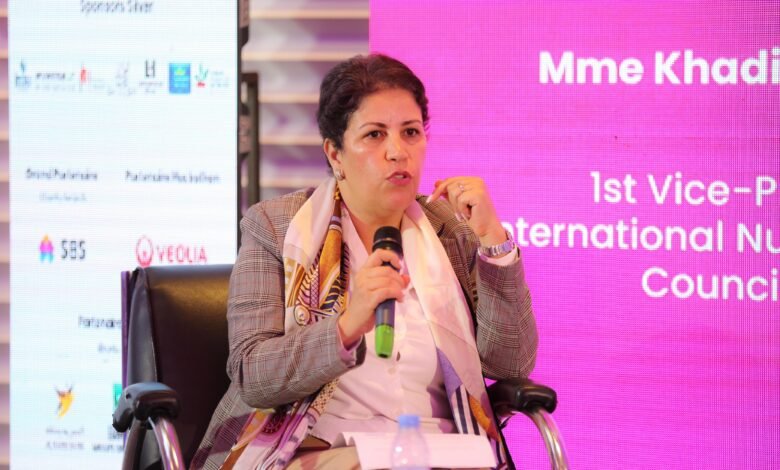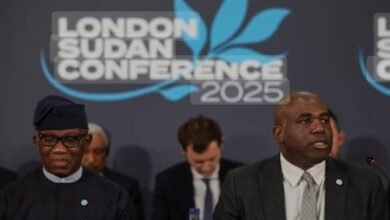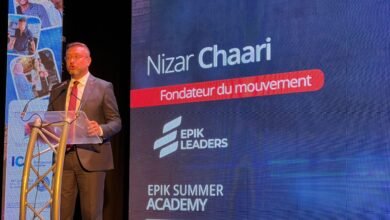Khadija Bendam: Opening Pathways for Young Women in Nuclear and Renewable Energy

By Karima Rhanem, Senior Managing Editor
At the Women Driving Sustainable and Impact Economy Conference, organized by Women Summit, held under the Honorary precedence of Her Royal Highness Princess Lalla Meryem, Khadija Bendam, First Vice-President of the International Nuclear Societies Council (INSC), took part in a high-level panel focused on inclusive leadership and sustainable energy transition. Alongside Zineb Bennouna, Director of CSR and Communications at LafargeHolcim Maroc, and Claudia Gaudiau-Francisco, Secrétaire Général chez Tectra Recrutement Maroc, Bendam laid out concrete strategies to attract more young women into science and technology fields — especially in the areas of civil nuclear energy and renewable energies.


Bendam opened with a strong message on representation. “We must make inspiring female role models more visible,” she emphasized. As the first woman to serve as Vice-President of the INSC, she regularly visits schools and universities to share her career path and inspire young girls to envision a future in scientific fields. These engagements are designed to dismantle gender stereotypes and offer accessible examples of women succeeding in science.
She also stressed the importance of structured support systems. Through her leadership in Women in Nuclear (WiN) Global, Bendam has created pathways for women to gain access to high-level expertise, mentoring, and technical training. As the founder of Women in Nuclear Emergency Preparedness and Response (WINEPRI), she leads a cross-institutional program supported by CNESTEN (the Moroccan National Center for Nuclear Energy, Sciences and Techniques), the International Atomic Energy Agency (IAEA), and international experts. WINEPRI organizes simulations, mentorship initiatives, and educational outreach at all levels — from middle school to university — to cultivate interest and ambition among young women.
Financial and academic support is also central to her approach. “We must set up targeted scholarships for girls in STEM — science, technology, engineering, and mathematics — with a focus on civil nuclear, renewable energy, and emergency response,” she said. She called for the development of early educational modules that challenge gender norms through workshops, testimonials, and technical site visits.
At the policy level, Bendam argued for institutionalizing gender inclusion as a standard performance indicator in energy transition strategies. “We must activate both institutional levers and multi-actor partnerships,” she noted, referencing Morocco’s 2011 Constitution — specifically Article 19, which guarantees gender equality across civil, political, economic, and environmental sectors. She advocated for gender quotas in decision-making bodies, corporate incentives for promoting parity, and integration of gender in recruitment, training, and evaluation processes.
She also praised national progress, citing the “Clean Package” launched by Her Excellency Leila Benali, Morocco’s Minister of Energy Transition and Sustainable Development. The initiative created a balanced expert committee — composed of three men and two women — an example Bendam welcomed as a sign of clear, intentional leadership.
International collaboration remains a key part of her mission. Through her work with the IAEA and her support for the Marie Skłodowska-Curie Fellowship Program, Bendam helps finance the training of young women entering the nuclear sciences. As President of Women in Nuclear Morocco and board member of Women in Nuclear Africa, she develops partnerships with universities, and private companies to integrate women into sectors like small modular reactors (SMRs), radiological safety, and energy innovation.
In addition to WINEPRI, Bendam contributes to expert working groups within WiN Global. These groups cover areas such as decommissioning, nuclear medicine, experimental installations, innovation, radiopharmaceuticals, nuclear law, nuclear security, and nuclear disarmament for peace. They operate with the support of institutions such as Electricité de France (EDF), the OECD Nuclear Energy Agency, the World Nuclear Association, the IAEA, and the Vienna Center for Disarmament and Non-Proliferation. Together, these networks offer webinars, mentorship programs, and technical workshops that give young women structured and meaningful access to advanced fields.
Reflecting on her experience, Khadija Bendam said: “This summit is not only a space for connection and collaboration — it is a message of hope and strength. The journey may be difficult, but it is never impossible.” She concluded with determination: “Attracting and sustainably integrating women in the sectors of energy transition requires a commitment that is political, institutional, educational, economic, and personal. As a dedicated leader, I will continue to carry this message — in Morocco, across Africa, and within international forums.”





